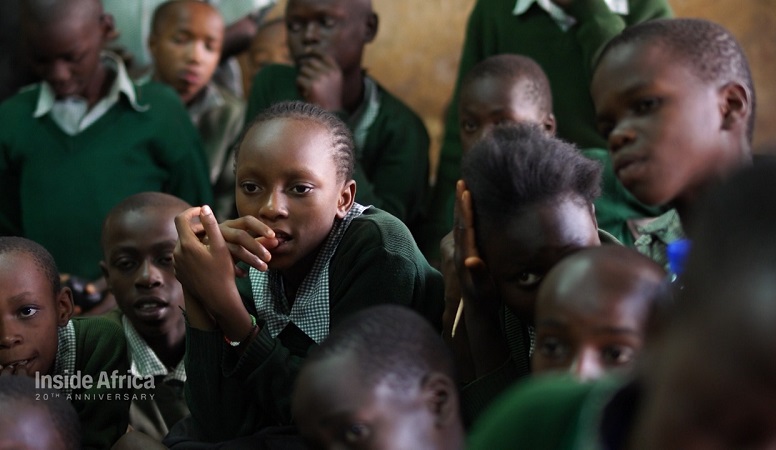This week on Inside Africa, CNN International revisits Mike Wamaya, a Kenyan dancer who uses his skills to help children living in Kibera, Africa’s largest urban slum.
Wamaya was born in Kariobangi, Nairobi. He talks about his tough upbringing, “Growing up in Kariobangi, it was filled with a lot of pain because you don’t get access to maybe three meals a day and there’s a lot of violence around, there’s a lot of crime, there’s a lot of negative issues.”
Despite growing up against this backdrop of crime, Wamaya had an unconventional dream, he wanted to dance. He describes his unusual audition for the Kenya Performing Arts Group, “I left everything behind me. I just left with my trousers, with my boxers and a vest and then when they said, “now people should change into dancing clothes”, I didn’t have any, so I just had my boxers. And I just said, “Can I dance in my boxers? Is that ok?” and they said, “It’s fine”. So, I got on stage and I was dancing in that and that was that point that my mind flipped… like I’m not going back.”
Following the audition, Wamaya was given a full scholarship to study dance. He says that this opportunity changed his life, “When I’m dancing, I feel myself. I feel the strength in me that not so many people can see but I see it myself. I see my inner self. I see my energy. I see what I can do.”
By 2017, Wamaya had become a dance teacher, working alongside other local Kenyans for an organization that brings performing arts to children in the slums. Even without high-quality equipment, Wamaya says he hopes he can encourage children to succeed, “I also push them to realize that when you go to a proper dance studio, they’re not going to judge you like you’re from Kibera or something. They’re going to judge you on how talented and how good you are.”
With the help of his local community and contributions from his dancers’ parents, Wamaya managed to build his own dance studio, enabling him to teach even more children.
Although the studio’s momentum has been disrupted by the coronavirus pandemic, Wamaya hasn’t let it stop him from continuing to help people. While he teaches Zoom dance classes to raise money, the studio has been converted into an operation center to provide food support, “We’ve been able to support over 400 households every two weeks with food. And mainly it’s basic food, it’s handwash soap and maize meal and sugar and sometimes porridge for the tiny ones. Covid has given us a wakeup call in terms of being there for each other because we have seen how strong when the community works together what we can achieve.”
Hundreds of children have passed through Wamaya’s dance program, learning much more than just steps. Wamaya tells CNN about his philosophy, “I teach possibilities. Dreaming is possible and I let children dream in my class. Dreaming, they get to where they want to get.”

